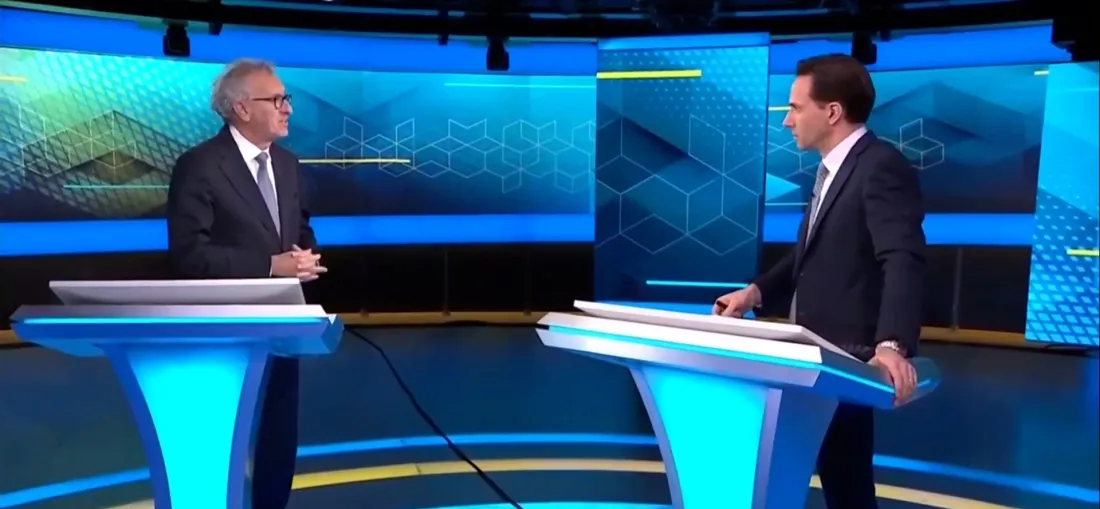Pierre Gramegna in interview with Bloomberg TV

Interview with Pierre Gramegna, ESM Managing Director
Bloomberg TV, 27 February 2024
Interviewer: Tom Mackenzie
Bloomberg TV: Let's start with the commercial real estate challenges that we are seeing. We've seen them in the US, we've done some reporting on the linkages between German banks and commercial real estate, maybe because of some arcane accounting rules that we haven't come to fully realise the extent of that exposure. How concerned are you about a potential crisis when it comes to commercial real estate in the Eurozone?
Pierre Gramegna: The commercial real estate issue as risk is well known in the United States, and also in Europe, which is due to the fact that interest rates went up so quickly. So that's a situation that could only have consequences on commercial real estate. If I focus more on Europe, I would say that most countries have issues, but it all depends on whether you have flexible interest rates or fixed interest rates. So, I wouldn't have a general view on it. We monitor it also as ESM, because, obviously, we are there to ensure financial stability or prevent a crisis. We obviously follow this. But as of now, I think this issue, which was on the radar since the interest rates went up in all countries, has not materialised spectacularly.
So, you wouldn't characterise it as a crisis right now, but you are focused on this risk.
Exactly.
Does there need to be more transparency around how German lenders account for their exposure to commercial real estate?
I wouldn't focus on German lenders. I think the issue is everywhere and we need to have a global view on this. That's what we do as safety mechanism that safeguards the euro area. We look at all the countries because we are a united Europe. You have to look at all the interlinkages.
But for now, you are confident that you have the clarity and the transparency into the linkages between commercial real estate and banks more broadly than across the Eurozone. You have that lens, do you?
We look into that and we're not the only ones.
So, talk to us about why you are here in London then. What is the purpose of your visit here? What are you trying to achieve?
The ESM has bonds outstanding and refinancing to the tune of close to €300 billion. We refinance that on a regular basis. And we are here in London because it's an important financial centre and also because the United Kingdom has been a steady investor in the ESM since the beginning and it's increasing over time. As we speak, more than 20% of our bonds are held by the UK and Switzerland. This gives you an idea of the size.
Is the appetite still there?
Yes, it's quite good. And we have been on the market since the beginning of the year and it was quite positive.
Italy's government hasn't yet ratified the ESM reform. Do you have a timeframe? Do you expect that to happen before the European elections?
Well, it can mechanically not happen before the European Parliament elections because it has been presented to the Italian parliament in December with a negative vote. In the Italian constitution, you need to wait for six months before you present it again. And so I think there's still a lot of explanations to do in Italy. In fact, in the first year in office, last year, I have visited all the member countries of the euro area, which are the members of the European Stability Mechanism, to see how the ESM can best respond to the needs that we have today. We have different types of crises today than those that triggered the existence of the ESM, which was the sovereign debt crisis. And at that time, we had in mind such types of crises. Then, we've had Covid, now we have the war in Ukraine and geopolitical instability, to say the least. Now we have the war at our doorstep. So obviously everyone is looking into how different institutions can best respond.
Because the Italians, of course, it's the stigma around austerity, the linkages between austerity and the ESM that is a political concern there. You mentioned the war in Ukraine. Olli Rehn, of course, who had formerly a consequential role across the eurozone, and a former EU economic affairs Commissioner has said the ESM should be a plan B in terms of Europe's assistance to Ukraine. Would you be open to that now?
First you have to realise that our mandate is to help the 20 member states in the euro area. We cannot help a country outside our remit, but obviously we could indirectly help. If some countries have issues that are triggered by the war in Ukraine or would have problems accessing the market, we could try to help them, and not only if there's a deep crisis, but also to prevent a crisis so we can help our members.
Author

Contacts


